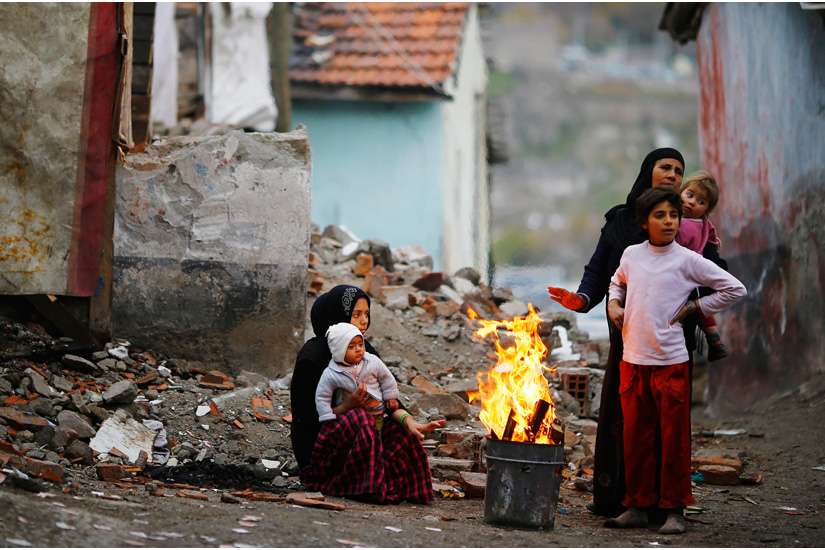“It is really puzzling that there was no consultation,” said Martin Mark, executive director of the Office of Refugees, Archdiocese of Toronto.
Ottawa committed to bring in 10,000 Syrians currently stuck in camps in Turkey, Jordan, Beirut, Iraq, Egypt and elsewhere over the next three years — 10 per cent of the 100,000 the United Nations High Commission for Refugees hopes to resettle. Along with the Jan. 7 announcement on Syrian refugees, the government announced it would take in a further 3,000 Iraqi refugees this year.
The Ministry of Citizenship and Immigration projects that 60 per cent of the Syrian refugees will be privately sponsored by churches, mosques, synagogues and community organizations.
If the government can keep the processing times down and provide support to sponsoring organizations, Catholic sponsors can do their part, said Mark.
“I have to say yes, it’s doable,” he said. “We will definitely need assistance.”
In the last year wait times for refugees from the Middle East have dropped from three-and-a-half years to about 18 months, said Martin. The best way Ottawa can help sponsoring organizations is to commit to definite and reasonable timelines, he said.
“What is their expected arrival time? It is not really encouraging if I tell a parish, ‘You know what, three-and-a-half years,’ ” said Mark.
Complicated application processes and long waits only undermine the enthusiasm and capacity of parish volunteers at the heart of refugee sponsorship, said Mark.
“Our work is 99 per cent volunteer based,” he said. “The human resources, the funds, the logistics, everything comes from volunteers. It’s not like a tap where you can just turn on and off the water.”
While Martin has plenty of praise for the new, shorter wait times, his recent visits to the region have him worried about future wait times.
“If you see the inventory or backlog at the embassy in Beirut, or you see the processing challenges in Turkey, then it creates questions,” he said.
The Sponsorship Agreement Holder Council, which represents most of the sponsoring agencies across the country, urged the government to contact it as soon as possible about the new commitment. The sponsorship group has complained repeatedly that the government never consulted it about its initial commitment to take in 1,300 Syrian refugees by the end of 2014. Private sponsors have taken in nearly 1,000 of that total, and Canada is expected to meet its 2014 goal early in 2015.
Sponsoring organizations are currently hampered by long processing times, complicated application procedures and the financial risk assumed by taking on refugees whose health insurance under the Interim Federal Health insurance scheme is extremely limited, the Sponsorship Agreement Holder Council said in a release.
Ottawa should not be counting private, civic sponsorships as part of its commitment to the UNHCR, said Mark.
“We believe in additionality,” he said. “That means that the government does its part in resettling refugees and we are happy to help in joint programs. But the civic resettlement should be over and above the government commitment.”
Mark also warns that the focus on Syria and Iraq should not squeeze out refugees from other parts of the world.
“We definitely need to see that helping Syrians or Iraqis is not at the cost of forgetting Darfur or Sudan or South Sudan, or forgetting the 100,000 refugees in Kenya, or the Ivorian refugees in West Africa,” he said. “We cannot do that and we will not do that.”


